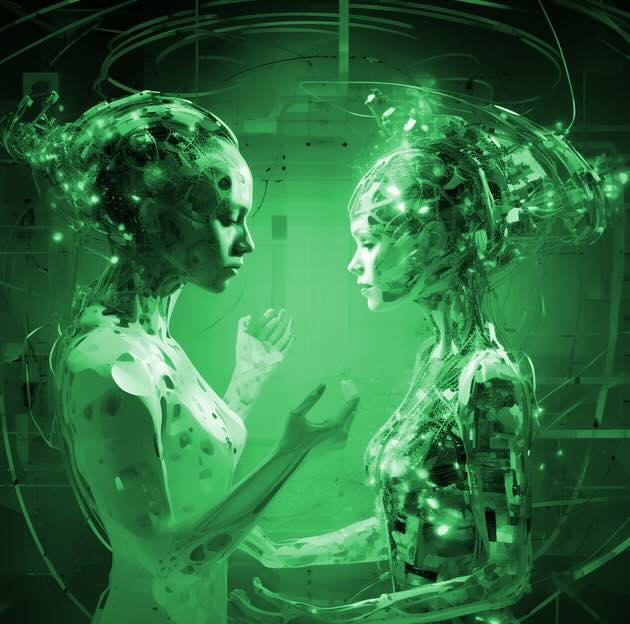What makes AI irresistible is its ability to analyze billions of pieces of data and draw conclusions from them, something that humans are incapable of doing. While the number of fields in which man will have an advantage over machine will diminish over time, there are still contexts in which he will have an advantage over them, at least for a while.
Data-Poor Domains (Small Data)
AI is competent and precise when working with Big Data. It is clumsy, imprecise or even incapable when the amount of data is limited. This is where humans are still a few years ahead of AI. But what are the areas where data is limited? Everything we do or are can be translated into the form of data: our behavior on the web, the data created by our bodies, and so on. Yet there are still areas where Big Data has yet to make its mark. It is in these rare enclaves that humans will still be able to make their mark.
Unlike AI, humans can analyze a small amount of data and draw the right conclusions. A baby, for example, can easily recognize the difference between a dog and a cat, without having to look at and compare millions of photos of cats and dogs.
It’s not clear what areas AI has not yet been deployed in. Certain legal provisions prevent data collection in certain areas in order, for example, to protect anonymity or security. However, these areas are becoming increasingly restricted.
The Bastion Of Small Data
Small data refers to everything that can be understood at first glance without the aid of artificial intelligence. Much of what we do on a day-to-day basis is actually the result of small-data analysis. At the same time, many of the tasks we do will not result in a job. Nevertheless, a job is the sum of a number of tasks, usually of the Small Data type.
Jobs Preserved For A While
The jobs that will resist AI are those that won’t need it, or that will be better than it (faster, less energy-intensive, etc.). There are still a plethora of professions that are protected from the onslaught of AI. Our advantage as humans, for the moment, is that our minds are perfectly integrated into an agile body. The jobs that are disappearing because of AI are those involving a human-computer interface in which the human body is static or not called upon. Of course, this advantage will disappear over time as robots become more agile. If your body and your intelligence are called upon (craftsmanship, etc.), you’ll be preserved for a while. If only your body (factory worker, etc.) or only your creativity (designer, etc.), you’ll sometimes be replaced by a machine, sometimes by an AI.
Understand, AI Means That Intelligence Becomes Abundant And Cheap
AI is the equivalent of the discovery and use of oil in the 19th and 20th centuries. Before oil (and a fortiori coal) was exploited, energy was expensive, and everything had to be quantified in human labor. Indeed, it was industrialization and the use of carbon-based energy that partly rendered obsolete the use of massive human labor in the primary economy (leading in particular to the abolition of slavery in industrialized countries, an abolition that came much later elsewhere, such as in the Gulf States – during the second half of the 20th century -). Where oil means the substitution of manpower (or its better use), AI means a drastic reduction in the cost of intelligence. For example, it takes a human 30 years to obtain a doctorate (from birth). For an AI, access to equivalent knowledge is almost instantaneous.
The Accessibility And Low Cost Of Intelligence Call Into Question Human Economic Value
Until now, what defined man in relation to animals and machines was his ability to be creative and intelligent. Today, a significant portion of humanity is becoming less intelligent than AI (GPT-4 Chat is more intelligent than 48% of the French), and this portion will continue to grow. As a result, humans as a whole will have less and less to offer AI. Only an intellectual elite will be able to continue adding value to their artificial counterparts. It’s a bit like what happened with the industrialization of garment manufacturing: the majority of manual tailoring workshops closed down, and only the great couturiers continued to work in an artisanal way, since they had something to offer beyond ready-to-wear.










